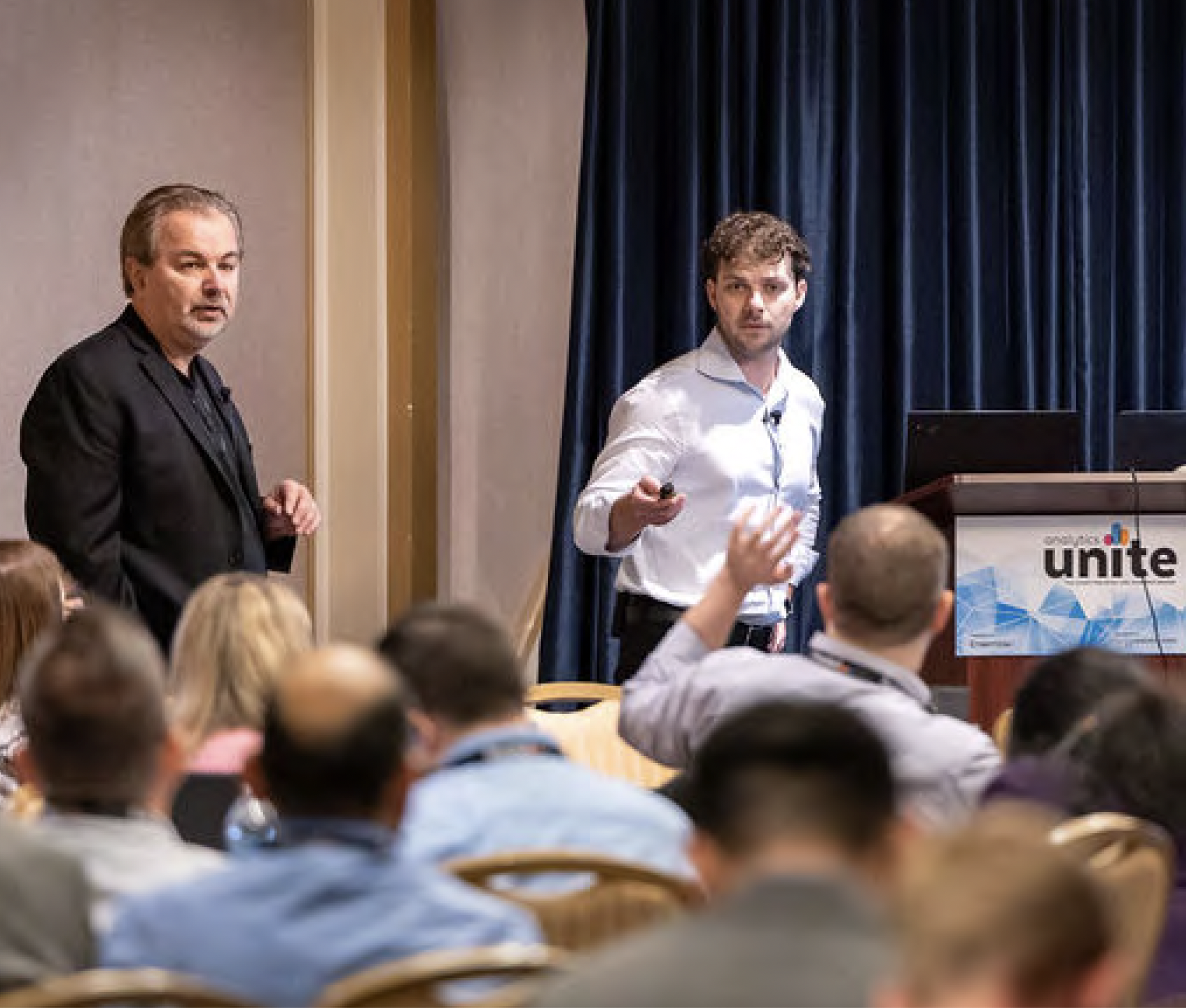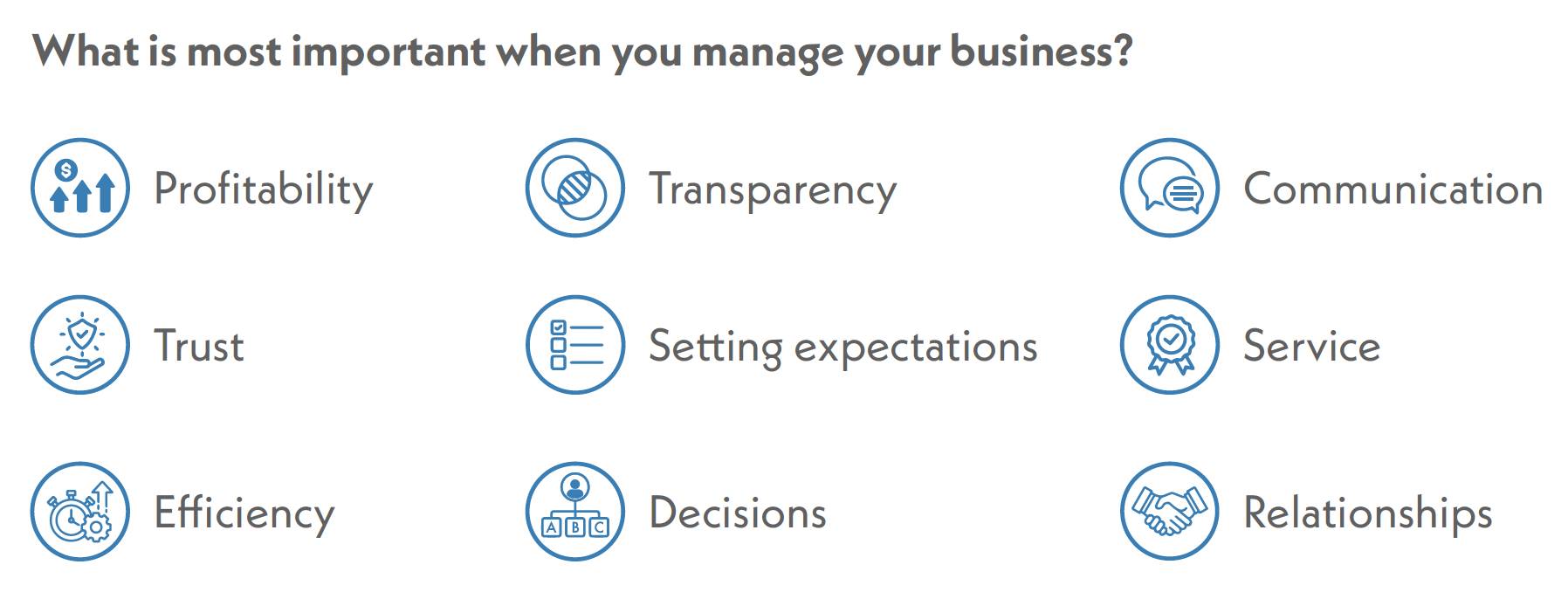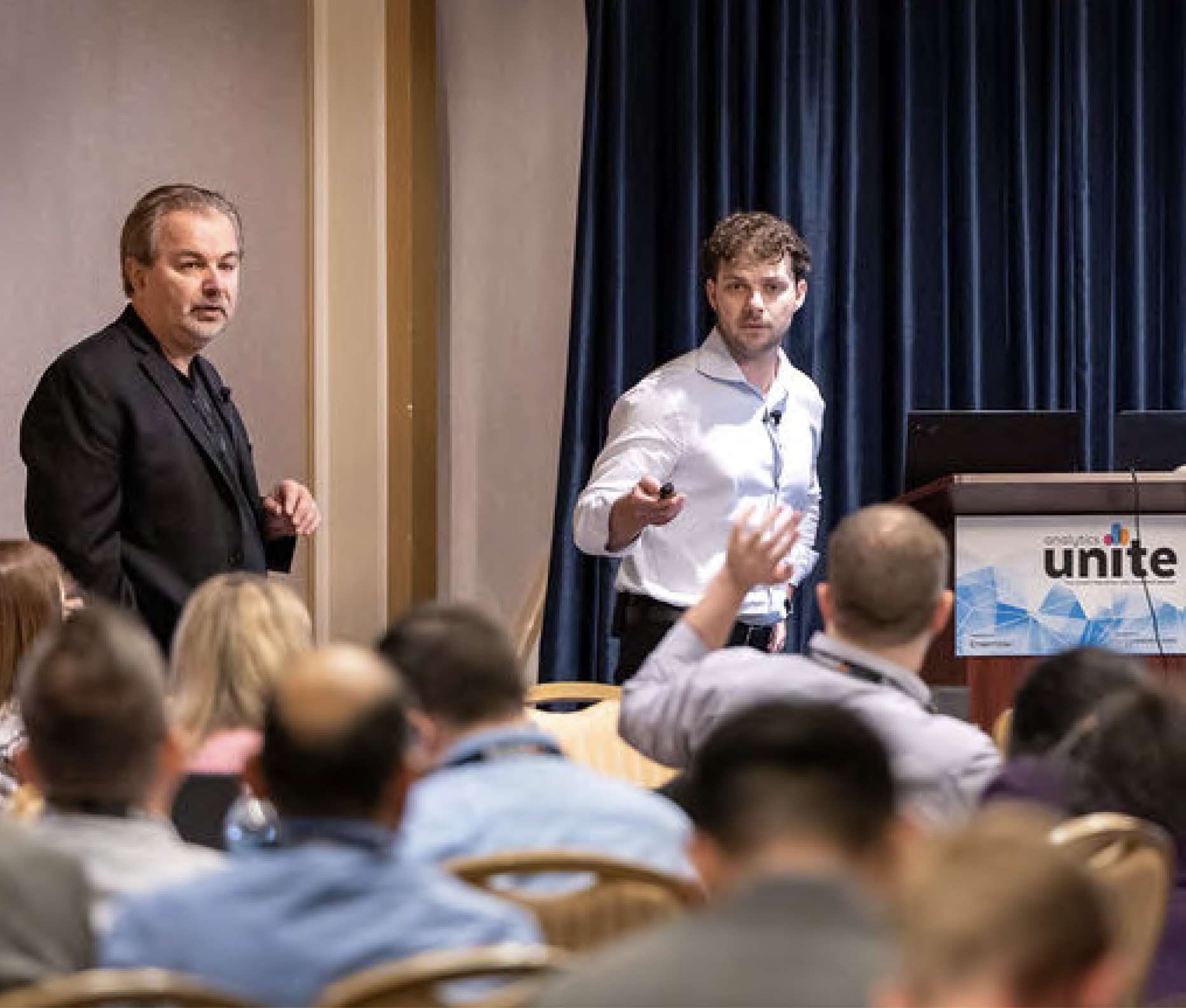At the Analytics Unite conference in Chicago this month, attendees were privy to a deep dive into the importance of connecting human decision-making with the power of artificial intelligence for better outcomes.
“The goal is to make decisions today that meet goals optimally with predictability and control of future performance with minimum risk,” said Eugene Roytburg, Cloverpop CEO and co-founder, during the interactive share group.
Noting today’s disconnect between managers and their employees about the quality of decision-making within organizations, retail and consumer goods organizations face a deep need for better and faster decisions — now more than ever. Finding success must start with the value, move to the decision, and end with the data.
Both Eugene and Lanny Roytburg, co-founder and chief commercial officer, highlighted the importance of decisions as the key drivers of business success and the significant number of decisions made daily by individuals and companies. They also acknowledged that human intelligence is remarkable but prone to errors and biases.

While there’s been a trend toward minimizing human input in favor of data-driven recommendations, this approach overlooks the value of human insight and leads to disconnects between decision-makers and the tools they’re expected to use. Instead, it’s important to acknowledge the limitations of relying solely on data analytics and AI and recognize the importance of human input in decision-making.
Participants broke into groups to react to the content and dig into their individual challenges:
“Machine learning has become modularized. I think it’s going to become based on ‘I need ML to better manage my email for me — administrative things, repeatable things — this is where humans will want to get the most value. We’re paid to make decisions, we’re knowledge workers. That’s where the engagement will be most valuable in the next decade.”
“There’s an inherent risk of generative AI replacing some analyst capabilities. But these people have experience that helps develop that human intuition. By eliminating rudimentary entry-level work, I worry that you are also eliminating that channel of experience that helps develop that human intuition we value so much.”
“Humans will continue having something that you cannot replace with machines — intuition, decision-making, and interpretability. That’s still going to be there. How do you help scale your talent to play in those spaces where AI is not playing? We are not here to eliminate jobs; it’s to make life easier and make more exciting things. That’s the sweet spot. How do you create that spot for the human to play?”
Read this free pdf summary from Consumer Goods Technology for a complete summary of the key takeaways from this thought-provoking session.


